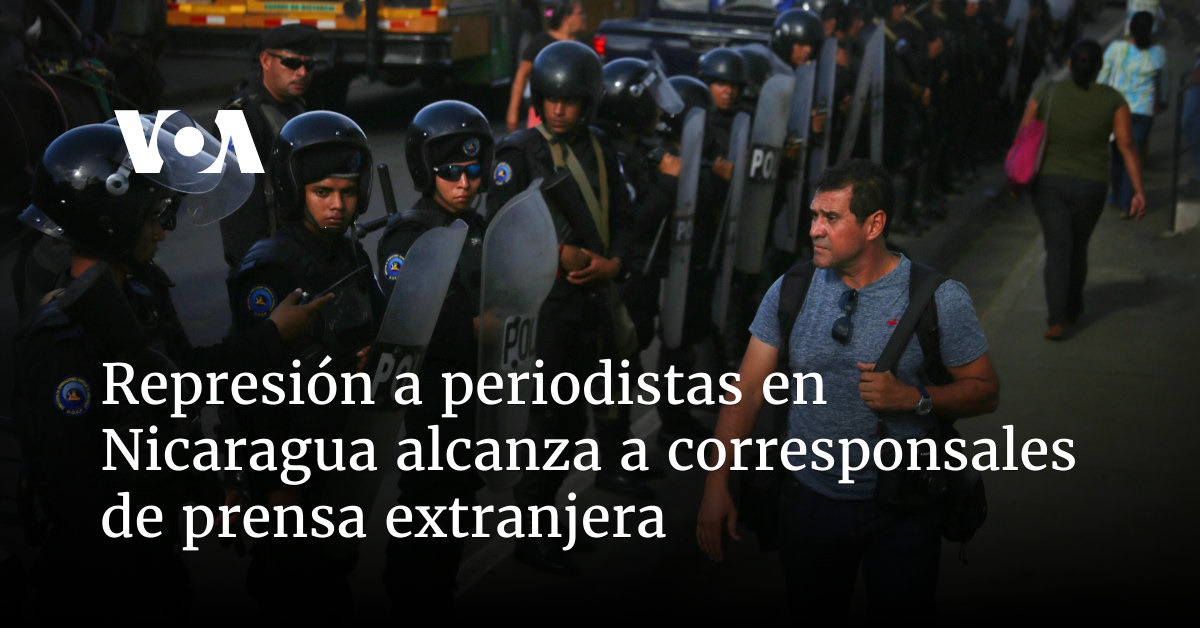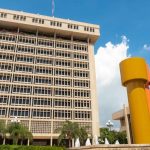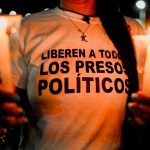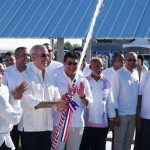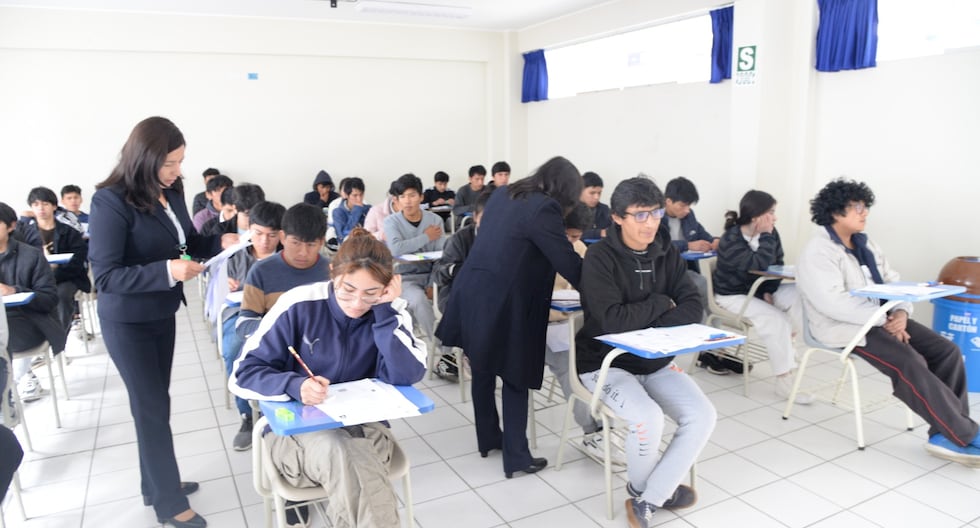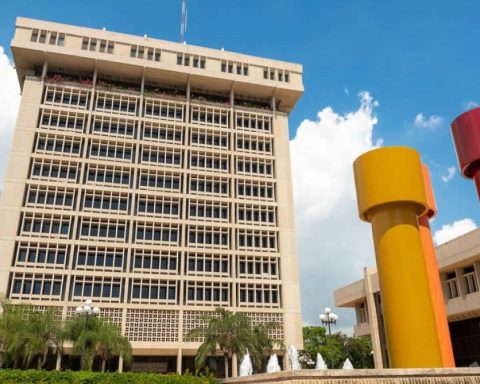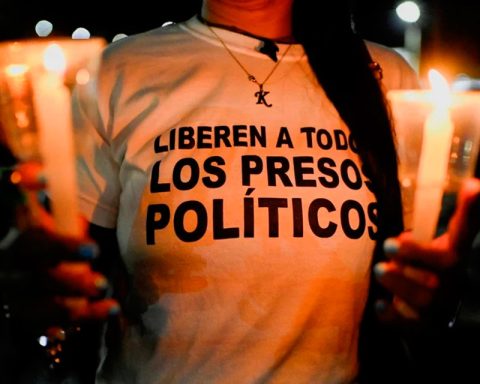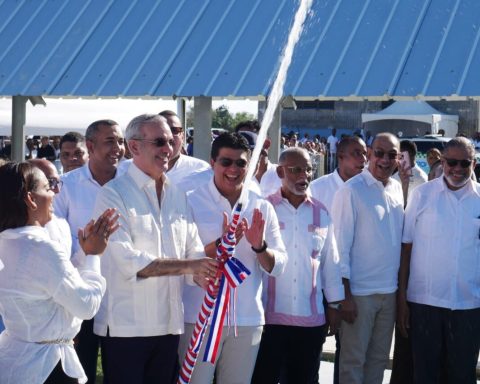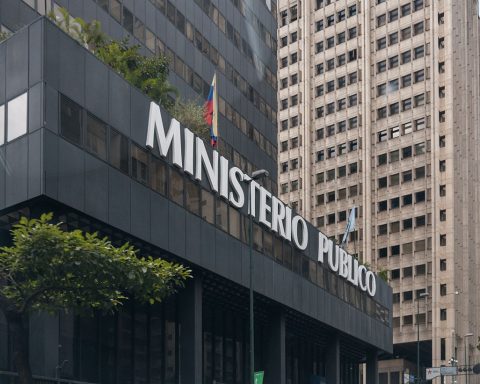Six years after covering the socio-political crisis in Nicaragua, Oswaldo Rivas, a 57-year-old experienced photojournalist who had been working for Agence France Presse (AFP) since 2023, had to leave the country in early June for the United States to protect his safety, after police officers raided his home and have been stationed there ever since.
The last time Rivas covered the story in Nicaragua was a baseball game. When he was working, Rivas says that men in plain clothes approached him to tell him that he had to leave the premises because he was being monitored by the authorities and was going to be arrested. He dismissed the issue, but that wasn’t until he received a call that alerted him.
“I called home and they told me there were cars with civilians outside. I didn’t go back home. I ran away, let’s put it that way,” the photojournalist said. “The next day they told me there were police patrols inside my house, that they were ransacking my house. Obviously I didn’t want to go back.”
The photojournalist’s residence is located in Managua, the Nicaraguan capital.
Rivas says he stayed for a few days in the Central American country, until he had to leave on June 8 through blind spots until he reached the United States where he requested political asylum.
Rivas claims that the persecution against him is due to his work as a photojournalist in Nicaragua.
“We cover everything that is… everything the riots against the government of Daniel Ortega in 2018. We were the object of several clashes with people… with those who supported the Ortega government. [en] Diriamba, Masaya, Monimbó, in Managua,” says the photojournalist.
“As a result of that, I think, I think we have been subject to attacks to this day… attacks and surveillance for doing our job.”
Daniel Ortega’s government did not respond to a request for comment on the allegations. AFP declined to comment on Rivas’s case.
Chinese and Russian press more present
The Organization of Independent Journalists and Communicators of Nicaragua (PCIN), the largest association in the country, indicated to the Voice of America that so far in 2024, there has been “a new wave of attacks on independent journalists in Nicaragua,” which includes attacks on correspondents of foreign news outlets such as AFP, El País, EFE, Reuters, among others.
This “wave,” they say, is reflected in the raids on journalists’ homes, the confiscation of cell phones and computers, intense interrogations and express arrests. Some of the reporters are released on conditional release since they must report daily or go to sign in with the police, they say.
PCIN estimates that there are currently approximately 270 Nicaraguan journalists and photojournalists in exile, including the AFP contributor.
In November 2021, EFE reported that Nicaraguan authorities had banned the Agency’s delegate in Managua, Nicaraguan Luis Felipe Palacios, from entering the country when he was preparing to return to the Central American nation after a work trip to Panama.
According to EFE, Palacios could not board the direct flight on which he was to return to his country, because, as the airline informed him, the Nicaraguan authorities had denied him entry.
In October 2021, El País correspondent in Managua, Wilfredo Miranda, advertisement his release for security reasons after being summoned by the prosecutor’s office.
“The regime implements a pattern of repression that seeks to extinguish independent journalism in Nicaragua and avoid any form of oversight. While this is happening, it is advancing in the strengthening of the official media system with direct advice and training of media outlets from China,” he told the newspaper. VOA Julio López, from the PCIN journalists organization.
While this is happening, Daniel Ortega’s government reports the continued arrival of foreign press sympathetic to China and Russia.
In mid-July, a group of journalists from the China Media Group arrived in Nicaragua to “share” information with coordinators of the Citizen Power Media, which is what the official media controlled by President Ortega are called.
But in Nicaragua there is also the presence of Russian media such as Sputnik, who sometimes “share a series of exchange and learning meetings with young communication students from Nicaraguan universities,” according to the official press.
[Con colaboración de la corresponsal de la VOA en Colombia, Karen Sánchez]
Connect with the Voice of America! Subscribe to our channel Youtubeand activate notifications, or follow us on social networks: Facebook, Twitter and Instagram.
